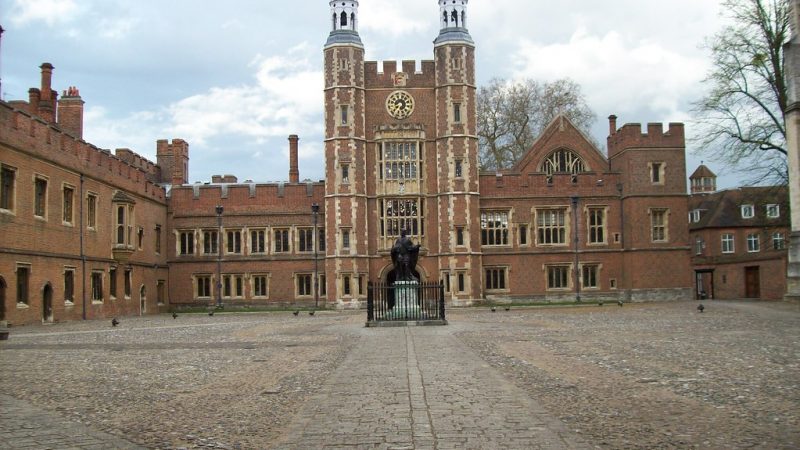Eton received £3.3 million of rental income from its real estate portfolio and £5.8 million from selling commercial property. Charity?

‘Class war’, screams the Daily Mail at the Labour Party, for daring to tackle educational inequality and our socially segregated education system that works to the detriment of those from working class, disadvantaged and state school backgrounds.
The right-wing press are furious that schools like Eton could be deprived of their charitable status, this despite the fact that during 2020-21, Eton received £3.3 million of rental income from its real estate portfolio and £5.8 million from selling commercial property. Charity?
Yes I know, not every private school is like Eton, but nonetheless private schools as a whole do not just produce inequality down the generations, they also harm the fabric of a country through an unequal education system, in which your own talent and merit do not determine how far you get in life, but rather the postcode you’re born in and the type of school attended.
If this was an argument entirely about merit, how then do we explain the findings of the Social Mobility Commission that even when those from working-class backgrounds have the same education attainment, role and experience as their more privileged colleagues, those from poorer backgrounds are still paid an average of £2,242 (7%) less. I doubt many people send their children to private schools just for the sake of the quality of education. They are also acutely aware that it will give them a head start in life and endow them with certain cultural and social forms of capital that have nothing to do with merit and more about wealth and class.
The Labour leader Keir Starmer then is absolutely right to want to abolish the charitable status of private schools, a move that would raise £1.7bn, money that will then be reinvested in our state schools.
You will of course have those who then claim that private schools deserve their charity status as they save the taxpayer a great deal of money because they don’t ‘burden the state system’. How many millions will you need to educate these extra students they say, if more parents are incentivised to send their children to state schools that the vast majority of us attend.
First of all, I think it would be a good thing if more parents from privileged backgrounds send their children to the state schools that the majority of us attend, for it would mean that they too would now have a stake in improving state education.
Secondly, if they’re concerned about the extra millions of pounds that would be needed as a result of more students being educated in the state sector, and their overarching concern is the economy, what about the millions, potentially billions, of pounds lost to the economy as a result of those from working class and disadvantaged backgrounds not being allowed to fulfil their potential because of a two-tier education system.
One of the main justifications given for private schools retaining their charity status, is the claim that they offer bursaries and scholarships to those from disadvantaged backgrounds whose parents could otherwise not afford the fees.
It’s worth pointing out then that only 4% of private school turnover is devoted to bursaries, and only 1% of private school pupils get to go for free. According to research by University College London’s institute of education, bursaries and grants are relatively low in value and distributed to only one in five of families outside the top 10% richest families.
Others have accused the Labour Party of engaging in the ‘politics of envy’, demanding that the focus should instead be on ‘levelling up state schools’. What they always conveniently ignore is how state schools have been levelled down by Tory governments. Indeed, the IFS has found that under the last 12 years of Tory rule, education budgets have been slashed. The average private school pupil had £6,500 – or 91.5% more – spent on them during the 2020-2021 academic year than the average peer at a state school.
The most deprived secondary schools in England saw a 14% real-terms fall in spending per pupil between 2009–10 and 2019–20, compared with a 9% drop for the least deprived schools. Would it be right then to describe the funding cuts in state school budgets as a form of ‘class war’ being pushed by the government?
It’s ironic then that the defenders of private education and all the perks it brings are accusing the Labour Party of ‘levelling down’ when the Tories have levelled down state schools for over a decade.
Education is supposed to be the great social leveller. It’s about time then that the playing field was levelled. Abolishing the charitable status of private schools is a step in the right direction.
Basit Mahmood is editor of Left Foot Forward
To reach hundreds of thousands of new readers we need to grow our donor base substantially.
That's why in 2024, we are seeking to generate 150 additional regular donors to support Left Foot Forward's work.
We still need another 117 people to donate to hit the target. You can help. Donate today.



